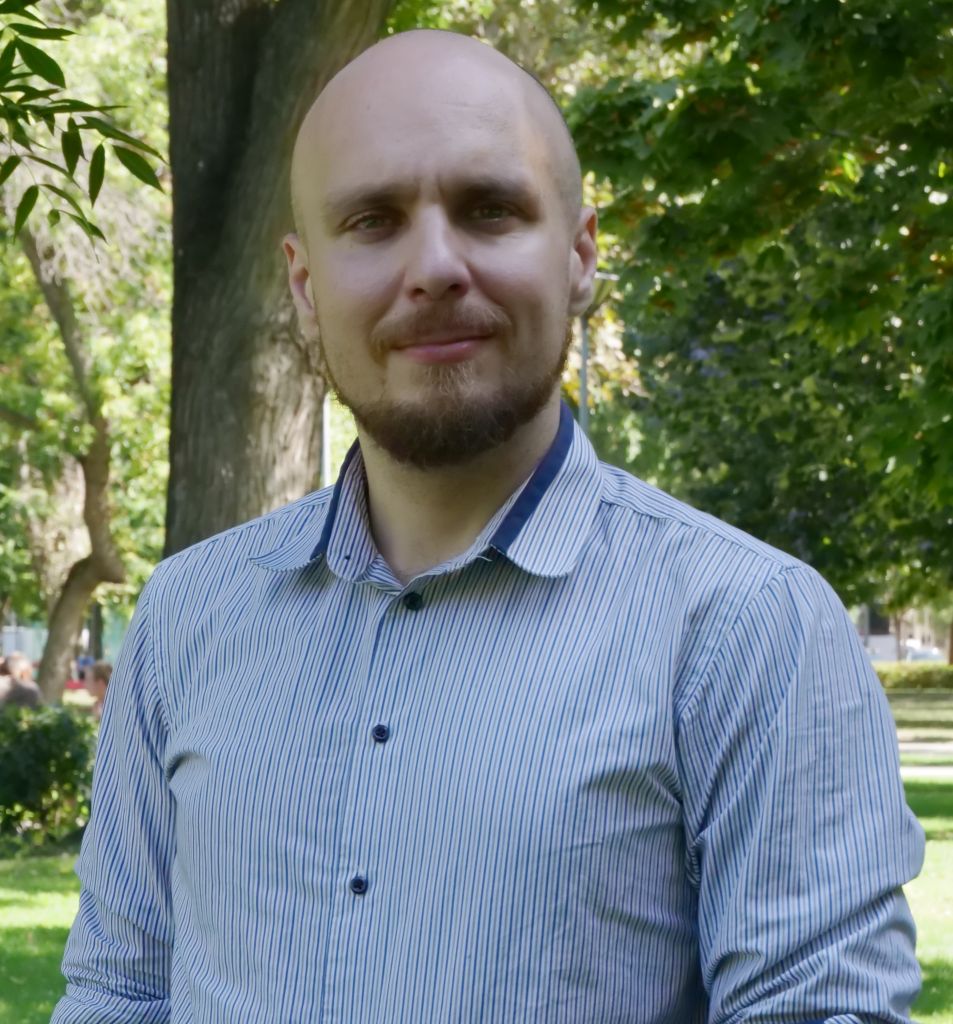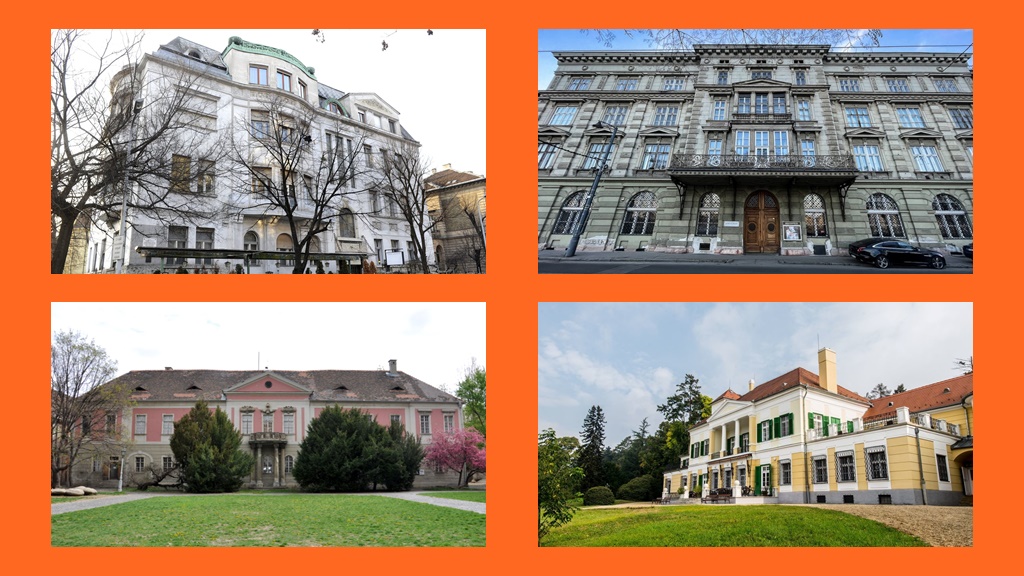The https://english.atlatszo.hu use cookies to track and profile customers such as action tags and pixel tracking on our website to assist our marketing. On our website we use technical, analytical, marketing and preference cookies. These are necessary for our site to work properly and to give us inforamation about how our site is used. See Cookies Policy
The multi-billion real estate fortune of Szilárd Demeter’s outsourced empire
In less than a year, the network of Hungarian culture commissioner Szilárd Demeter has gained a real estate portfolio worth billions of Forints. Mr. Demeter, who received international criticism over his comments about “George Soros’s gas chamber” now controls several monumental castles and lucrative cultural centers.
Szilárd Demeter’s lightning-fast rise is striking even in the context of the Orban era, where even a former gas fitter with political connections could become the richest man in Hungary. Mr. Demeter first came into prominence as the director of the Petőfi Literary Museum in 2018, and in two years he would become probably the most influential figure in cultural policy. He was recently selected by the Parliament to head a new foundation (Magyar Kulturáért Alapítvány; Foundation for Hungarian Culture) that has been scheduled to take control over the most important literary and art organizations, as well as billions worth of formerly national properties, handed over for free.


A chart of the structure of organizations connected to Szilárd Demeter, with their valuable properties
Fresh from the culture war
His appointment to head the Petőfi Museum was already controversial: he succeeded Gergely Prőhle, who was previously attacked by a series of articles published in Magyar Nemzet, a publication heavily associated with the governing Fidesz party. The author of the articles, Árpád Szakács accused Mr. Prőhle of being “too soft” on culture war issues and called for someone who would not give a platform to “liberal and anti-government” authors. After the articles, the Ministry of Human Resources (EMMI) fired Prőhle and appointed Mr. Demeter, a former newspaper editor and staff member of the Századvég Institute, a pro-Fidesz research firm.
Internationally, Demeter is most known for publishing an opinion piece in 2020, calling George Soros the “liberal Führer” and saying that he is turning Europe into a “gas chamber.” The article was widely criticized by Jewish and Holocaust memorial groups including the American Jewish Committee in Central Europe, as well as opposition politicians who called for Demeter’s resignation. Later, he stated in a statement: “My critics are right in that… the Nazi parallel can unintentionally offend victims’ memories,” and withdrew the article.
The Petőfi Literary Museum (PIM) is one of Hungary’s most prominent literary organizations, which presides over several local institutions that house exhibitions and circulate publications. After he was appointed director, Demeter’s domain expanded rapidly: in 2019, a government paper was leaked to the press, which stated that PIM should be turned into a cultural institution of national importance.
Not long after, the government doubled PIM’s budget and handed its control over the National Talent Nonprofit Ltd., a formerly government-controlled firm distributing scholarships. Demeter also founded the Petőfi Literary Agency (Petőfi Irodalmi Ügynökség), which immediately acquired over 6 billion forints of assets, including the Budapest headquarters of the Hungarian Writers’ Association.
Castles and nightclubs
Next year, an even more ambitious program was released: this called for the creation of a new top organization that would preside over PIM and several key cultural institutions, including MANK Kft., a state-owned firm that operates a country-wide network of art studios. The paper – supposedly written by Demeter himself – also suggested some valuable real estate properties be handed over, including the 19th-century Zichy castle in Óbuda.
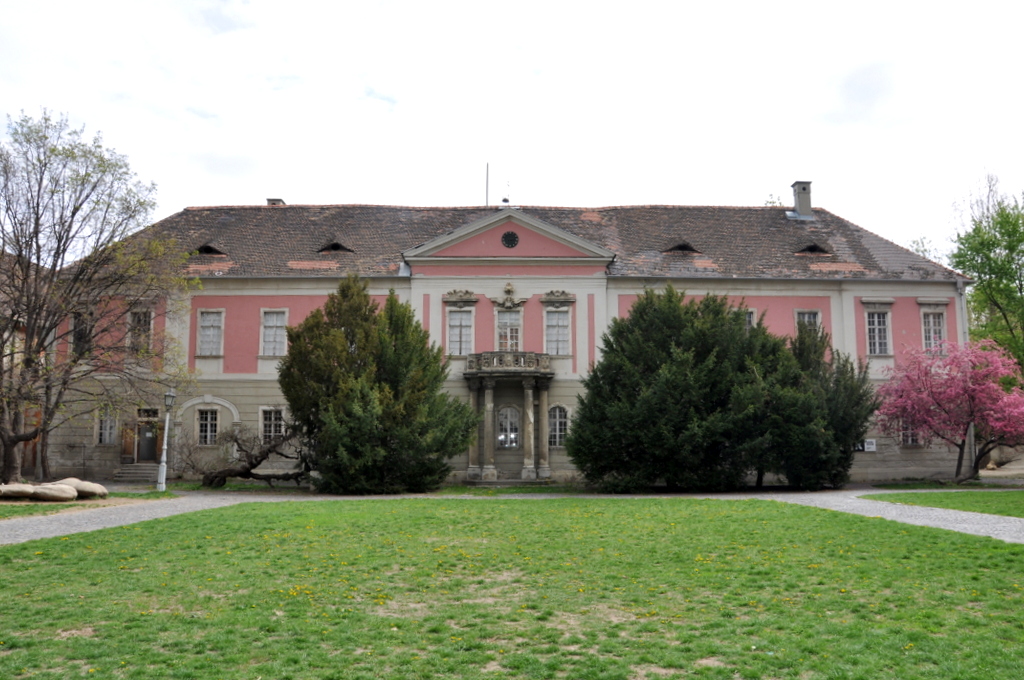
Zichy Castle in Óbuda (photo: VinczeB / Wikipedia)
A slightly modified version of the program was soon accepted by the Parliament. In fact, Demeter got more than he asked for: the new law established the Foundation for Hungarian Culture with him as a curator that would control the Petőfi Literary Agency and MANK Kft. as well. It also gave the Petőfi Literary Agency (later rebranded as Petőfi Cultural Agency Incorporated) control over a massive real estate portfolio.
Their new acquisitions include the 2500 square-meter Andrássy palace of Budapest.
Located on the bank of the Danube, it currently houses shops, apartments, and offices. The palace was previously owned by the local government of the 1st district of Budapest, which sold it to the state well under market price, for 895 million Forints. At the time of the transaction, the government was planning to turn the castle into a museum about the Andrássy noble family. This plan will almost certainly be canceled, instead, Demeter said the building will house a “rock and jazz center.”
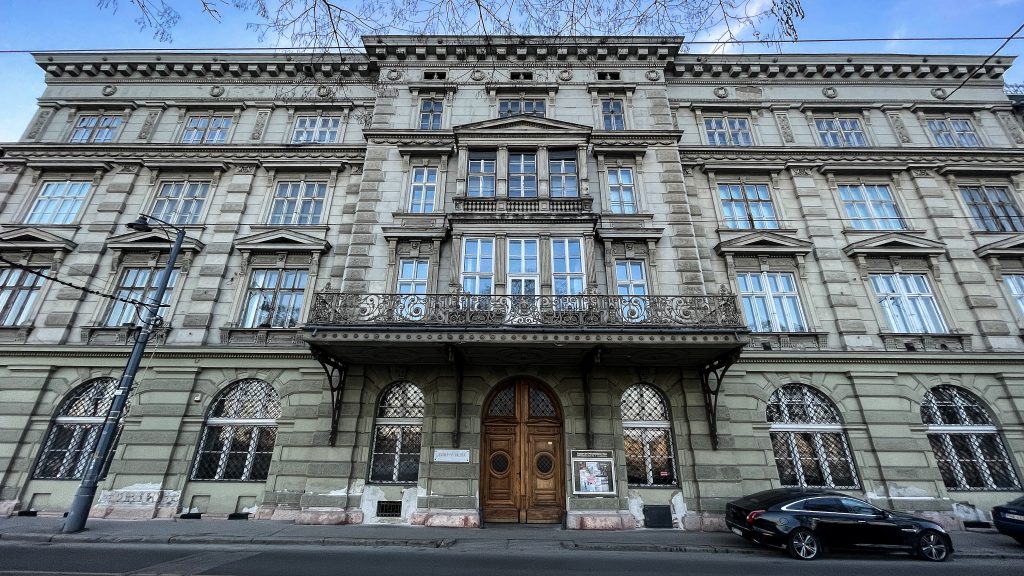
Andrássy Palace, Photo: Dániel Németh
Another jewel in the portfolio is the 18th-century Baroque monument in the Main Square of Óbuda, the 15 000-square-meter Zichy Castle.
It is yet uncertain how the castle would be utilized by Demeter’s company, he told Telex in September that he wanted “the building complex to become a home for a demanding and high-quality culture”.
The situation is also complicated by the fact that there are still several cultural institutions in the building, and an even bigger problem is that almost half of the property is used by the local government. It is not yet known if and when they will have to move out.
Even more valuable are the 30 hectares of land located on the Hajógyári island (best known as the location of the Sziget music festival). The 8 properties handed over to the Agency cover almost a third of the island and include the ruins of a Roman villa and several other monuments. Also found here are the sites of nightclubs formerly owned by László Vizoviczki, a noted crime boss who was arrested in 2012 and had his properties confiscated by the state. The site is expected to be turned into another entertainment venue controlled by the Petőfi Agency. Even before the acquisition, the government gave the Agency 23 billion forints for such a project.
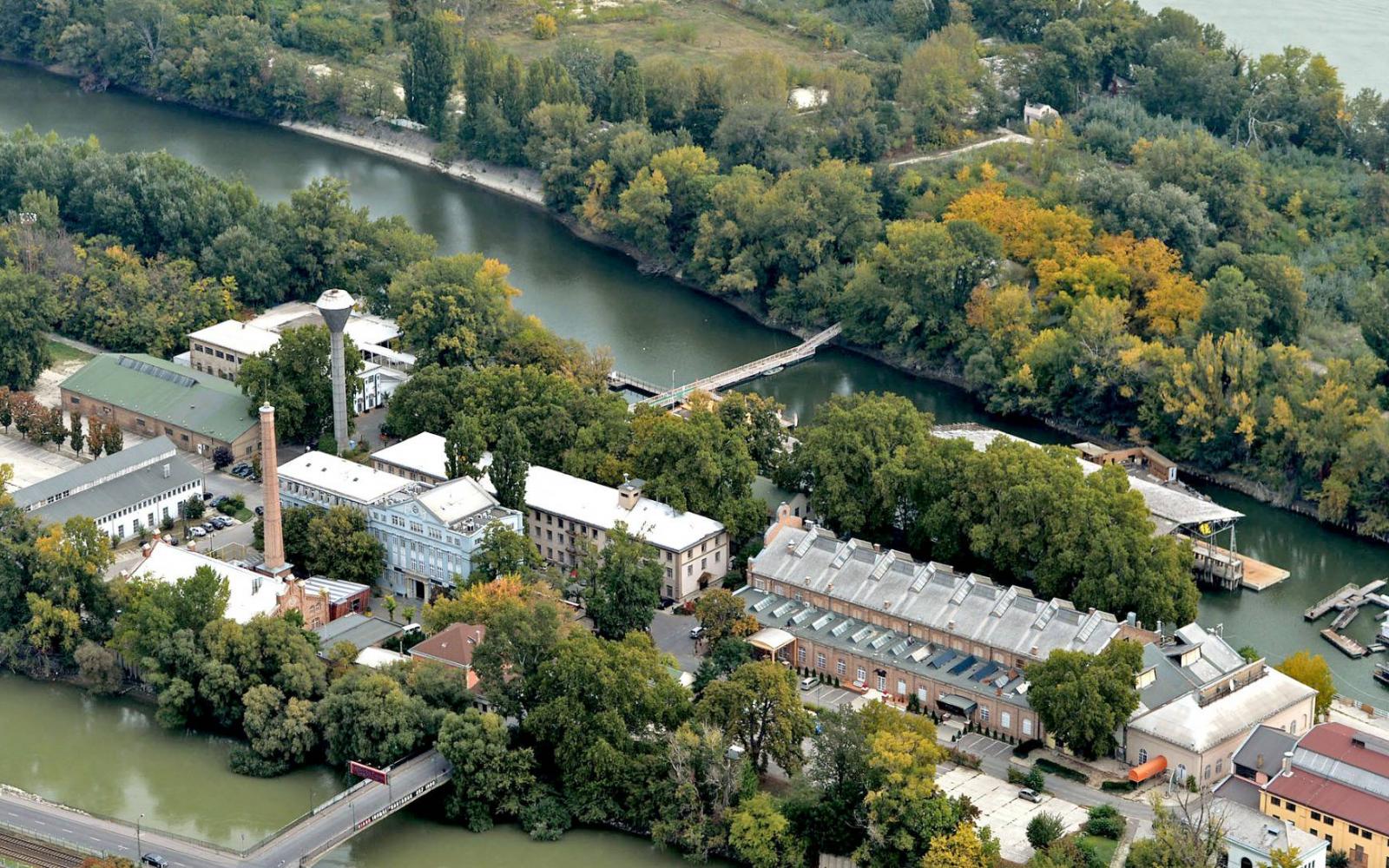
Real estate formerly owned by Vizoviczky and now being transferred to Demeter Szilárd non-profit Ltd., photo: Foto: ORFK / H. Sándor Szabó
Outsourcing a country
The other formerly state-owned firm acquired by Demeter’s foundation, MANK Kft. (Magyar Alkotóművészeti Közhasznú Nonprofit Kft.) also comes with a valuable inventory. According to the firm’s estimate, their properties are worth over 8 billion Forints: it mostly includes studios that can be rented out by artists. Some of them are also housed in former noble castles, such as the Puteani-Esterházy castle in Szigliget. Last year, MANK reported over 100 million Forints of revenue from rents, although most of the firm’s income still came from government subsidies.
The way national assets were handed over to Demeter’s foundation is reminiscent of similar transactions this year. In early 2021, the parliament approved the creation of several new foundations, to which massive national institutions such as universities were transferred.
Some suspect that the ruling Fidesz party wants to outsource government assets to semi-private foundations led by their loyalist.
Thus, even in case of a change of government after the 2022 national elections, Viktor Orbán’s network would effectively retain control over key institutions.
This narrative is supported by the fact that before the first wave of outsourcing, Fidesz used its parliamentary supermajority to amend the constitution. Now the basic law states that the leadership and operation of “foundations with a public function” can only be changed with another 2/3 majority vote. Even if the opposition wins next year, it is unlikely they will gain a constitutional majority.
Written and translated by Zalán Zubor. The original, Hungarian version of this article can be found here.
Support independent investigative journalism in Hungary, become a patron of Atlatszo on Patreon!
